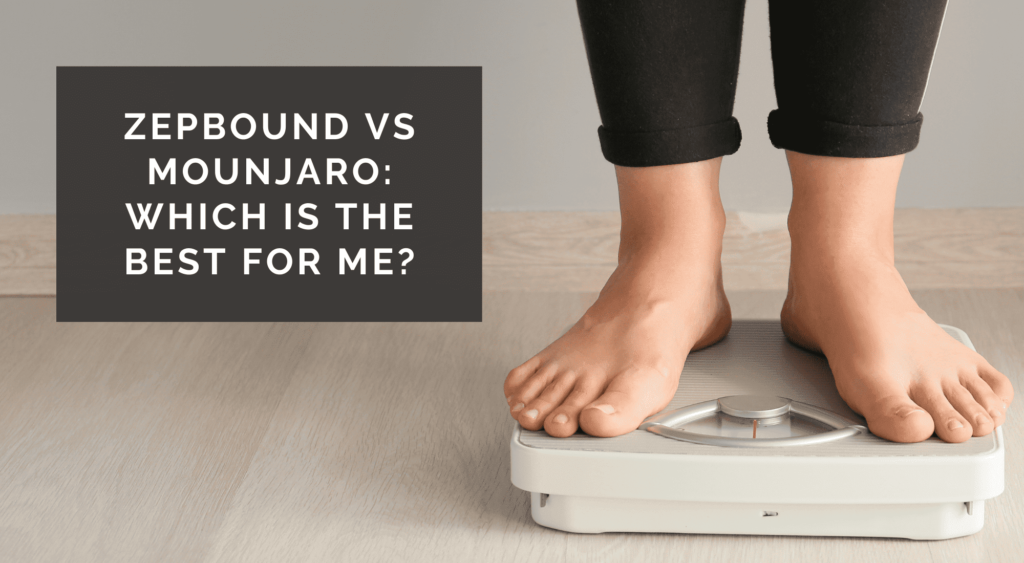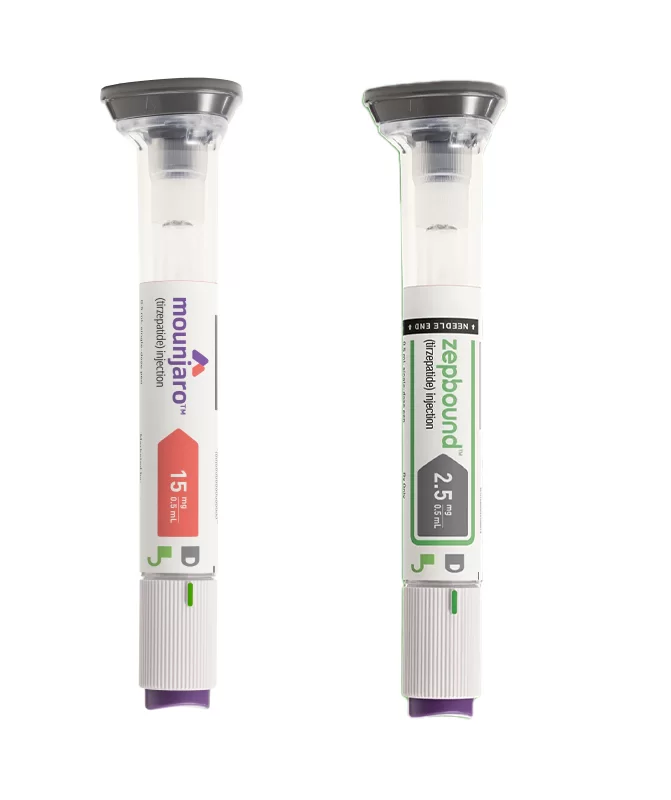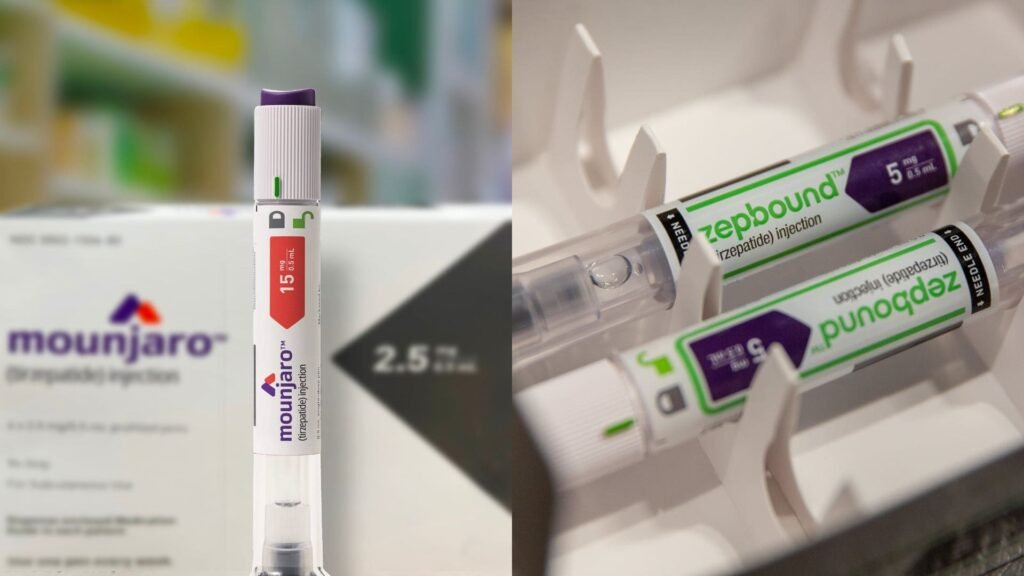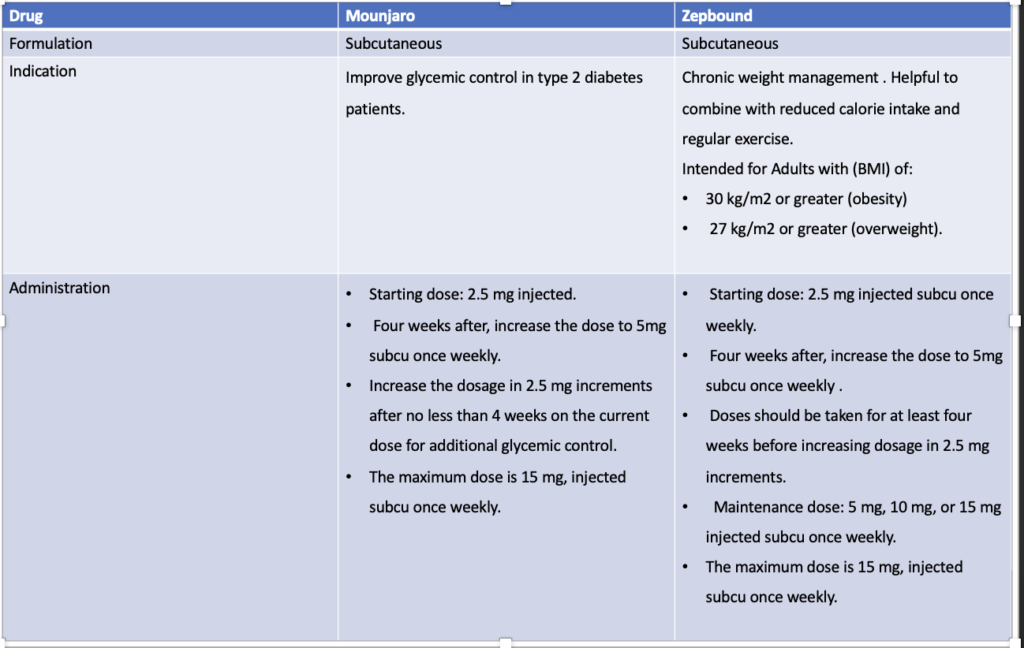The rise of innovative medications like Mounjaro and Zepbound has revolutionized how we approach weight loss and chronic health management. Both drugs are designed to address weight-related challenges, but they do so through distinct mechanisms. If you’re weighing your options, understanding the differences and similarities between Mounjaro vs. Zepbound can help you make an informed decision.
This comprehensive guide explores everything you need to know about Mounjaro and Zepbound, including their mechanisms, benefits, side effects, efficacy, and suitability for your unique health goals.
What is Mounjaro?
Mounjaro (tirzepatide) is an FDA-approved medication originally developed to treat type 2 diabetes. It is now widely recognized for its impressive weight-loss benefits, even in individuals without diabetes. Mounjaro is a GLP-1 and GIP receptor agonist, meaning it mimics the effects of two incretin hormones to regulate blood sugar, suppress appetite, and enhance metabolism.
Key Benefits of Mounjaro
- Effective for Diabetes and Weight Loss: Dual-purpose medication for managing blood sugar and promoting weight loss.
- Dual Hormonal Action: Targets both GLP-1 and GIP receptors for enhanced results.
- Significant Weight Loss: Clinical trials show weight loss of up to 15-20% of total body weight over 6-12 months.

What is Zepbound?
Zepbound (tirzepatide) is a newly FDA-approved injectable medication specifically for chronic weight management. It is designed for individuals with obesity or those who are overweight and have related health conditions. Like Mounjaro, Zepbound also targets GLP-1 and GIP receptors, making it a highly effective option for sustained weight loss.
Key Benefits of Zepbound
- Focus on Weight Management: Approved exclusively for chronic weight loss.
- Convenient Dosing: A once-weekly injection makes it easy to integrate into a busy lifestyle.
- Significant Results: Offers comparable weight-loss outcomes to Mounjaro, with clinical trials showing sustained weight reduction in most users.
Mounjaro vs Zepbound: Key Similarities
Since Mounjaro and Zepbound are both based on tirzepatide, they share many similarities:
- Mechanism of Action
Both drugs target GLP-1 and GIP receptors, helping regulate insulin levels, reduce appetite, and slow digestion. - Weight Loss Results
Both medications have shown significant weight-loss outcomes, with clinical trials reporting reductions of up to 20% of body weight in some individuals. - Administration
- Both are injectable medications administered once weekly.
- Doses are typically increased gradually based on tolerance and effectiveness.
- Side Effects
Both medications have similar side effects, such as nausea, diarrhea, and fatigue, which typically subside as the body adjusts.
Mounjaro vs. Zepbound: Key Differences
Despite their similarities, there are important distinctions between the two medications:
1. FDA Approval and Primary Use
- Mounjaro:
- Initially approved for type 2 diabetes management.
- Used off-label for weight loss, although weight management is not its primary FDA-approved indication.
- Zepbound:
- Specifically approved for chronic weight management in adults with obesity or overweight conditions.
2. Target Audience
- Mounjaro:
- Best suited for individuals with type 2 diabetes who also want to lose weight.
- Zepbound:
- Designed for those whose primary goal is weight loss, particularly individuals without diabetes.

3. Availability and Insurance Coverage
- Mounjaro:
- May be more widely covered by insurance plans for individuals with diabetes.
- Off-label use for weight loss might not be covered, leading to higher out-of-pocket costs.
- Zepbound:
- Specifically marketed for weight loss, making it more likely to be covered for obesity-related treatments.
Effectiveness: Mounjaro vs. Zepbound
Both medications deliver exceptional results, but their effectiveness can vary based on individual factors:
Clinical Trial Results
- Mounjaro:
- Participants in clinical trials lost an average of 15-20% of their total body weight over 72 weeks.
- Offers additional benefits for managing blood sugar levels in individuals with type 2 diabetes.
- Zepbound:
- Similar weight-loss outcomes as Mounjaro, with participants achieving sustained weight reduction over time.
- Focuses exclusively on weight management, without the need to address blood sugar concerns.
Who Sees the Best Results?
- Individuals with type 2 diabetes may experience enhanced benefits with Mounjaro due to its dual action on blood sugar and weight.
- Those seeking weight loss alone without underlying diabetes may find Zepbound more aligned with their goals.
Side Effects: Mounjaro vs. Zepbound
Both Mounjaro and Zepbound have similar side effect profiles due to their shared active ingredient. Common side effects include:
Gastrointestinal Symptoms
- Nausea
- Diarrhea
- Constipation
- Bloating or gas

Other Potential Side Effects
- Fatigue
- Decreased appetite
- Injection site reactions
Severity and Duration
- Most side effects are mild to moderate and subside within the first few weeks as your body adjusts to the medication.
- Proper hydration, dietary adjustments, and following your healthcare provider’s recommendations can help manage symptoms.
Mounjaro vs. Zepbound: Which is Right for You?
Choose Mounjaro If:
- You have type 2 diabetes and want to manage blood sugar levels while losing weight.
- You are looking for a medication that offers dual benefits for diabetes and weight loss.
Choose Zepbound If:
- Your primary goal is weight loss, and you do not have type 2 diabetes.
- You want a medication specifically designed and FDA-approved for weight management.
Consult Your Healthcare Provider
Always consult with your healthcare provider to determine the best medication based on your unique health profile, goals, and medical history.
Real-Life Experiences: Mounjaro vs. Zepbound
Case Study 1: Sarah’s Journey with Mounjaro
- Background: Sarah, 45, has type 2 diabetes and struggled with her weight for years.
- Results: After six months on Mounjaro, Sarah lost 25 pounds and achieved better blood sugar control.
Case Study 2: Mike’s Transformation with Zepbound
- Background: Mike, 38, wanted to lose weight after struggling with obesity-related health issues.
- Results: In 12 weeks on Zepbound, Mike lost 18 pounds and reported improved energy and confidence.

Final Thoughts on Mounjaro vs Zepbound
When it comes to Mounjaro vs Zepbound, both medications offer exceptional benefits for weight loss and health management. Choosing the right one depends on your specific health goals, whether you have type 2 diabetes, and your insurance coverage.
By consulting your healthcare provider and committing to a healthy lifestyle, either Mounjaro or Zepbound can help you achieve lasting weight-loss success and improved well-being.
1. Are Mounjaro and Zepbound the same medication?
Both medications contain tirzepatide, but their FDA approvals differ. Mounjaro is approved for type 2 diabetes management, while Zepbound is specifically approved for chronic weight loss.
2. Which is more effective for weight loss: Mounjaro or Zepbound?
Both medications are similarly effective for weight loss, with clinical trials showing reductions of up to 20% of body weight. Your choice should depend on your health needs and whether you also require diabetes management.
3. Are these medications covered by insurance?
Insurance coverage varies:
. Mounjaro is often covered for type 2 diabetes but not always for off-label weight loss.
. Zepbound is more likely to be covered for weight-loss treatment in individuals with obesity-related conditions.
